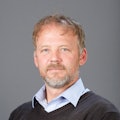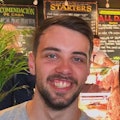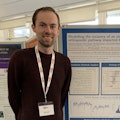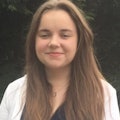The group has an impressive track-record of contributing to both the theoretical underpinnings of the subject and to novel applications, including working on complex problems arising in healthcare, public health and epidemiology, finance, transportation, timetabling, environmental issues, manufacturing, information security, and green logistics.
We have over 20 academic staff and research students and host an active seminar series jointly with the Statistics research group, Data Innovation Research Institute (DIRI) seminars, and meetings of the South Wales Operational Research Discussion Society (SWORDS), which regularly attracts a large audience of OR researchers and practitioners.
Our group members are also prominent in interdisciplinary collaboration, with particularly strong links to researchers in: computer science and informatics (research on data science, machine learning and their interface with OR methods); medicine (through our extensive programme of modelling work on health and care services); social sciences (modelling for societal benefit, social network analysis, public health and educational interventions); earth sciences and geography (food and water insecurity, rainfall modelling); and business and economics (financial and risk modelling).
Group members are highly active in international collaborations, for example including joint research and staff/student mobility with the Federal University of Rio de Janeiro and the University of São Paulo (Brazil), Twente University (Netherlands), ETH Zürich and EPFL (Switzerland), Carnegie Mellon University, University of California Davis, Cornell University and New York University (USA) University of Toronto, University of Manitoba (Canada), University of Namibia, University of Vienna (Austria), Technische Universität Berlin, Karlsruhe Institute of Technology and Technische Universität München (Germany), Monash University and the University of Melbourne (Australia), and University of Lisbon (Portugal).
Our staff and students have partnered with major external research users who help us deliver societal and economic benefit, including: Admiral, BA, Ernst & Young, Lloyds, McLaren, Nationwide, ONS, Tata Steel, Welsh Government and Welsh Water. Over the last REF period alone, the OR group has secured income directly from industry and charities to fund research amounting to 9 PhD studentships, 18 funded years of research associate time, and 4 years towards a match-funded lectureship.
Members of the Operational Research group are also contributing to the response to the COVID-19 pandemic and have been extensively consulted by the Welsh Government (WG) and its Technical Advisory Group (TAG). For example, OR methods and thinking have been key to scheduling the roll out of vaccinations across NHS Wales, workforce planning for WG Test, Trace and Protect strategy, facilitating a safe university campus, and optimising the design and deployment of our in-house asymptomatic testing service. The OR group is part of the Welsh wastewater screening project WeWASH, and we participate in the UK-wide OR response (N-CORN) through the Royal Society’s RAMP initiative.
Research
The main areas of research within the current group are:
- Planning and optimisation
- Queueing systems
- Healthcare modelling
- Environmental modelling
- Finance and risk
In focus
Planning and optimisation
Our planning and optimisation research considers fundamental research on mathematical optimisation techniques and also their applications to real life problems, particularly in the areas of transport, scheduling and packing. These techniques can be used to introduce efficiency and reduce waste in the logistical operations of companies and government agencies.
Fundamental research focuses on the theory of mixed-integer programming and combinatorial optimisation. In mixed-integer programming, we are interested in sparsity-proximity type optimisation problems and algorithms. Our research combines the standard optimisation tools with results from convex discrete geometry and algorithmic geometry of numbers. In combinatorial optimisation, our focus in mostly on graph-theoretical problems such as graph colouring, dominating sets and packings in graphs, vertex and arc routing, shortest path problems, and fixed-length cycle problems. We are particularly interested in dynamic versions of these, whereby problem structures and requirements evolve over time. Typical methods used in these areas include heuristics and metaheuristics, integer programming, and hybrid techniques.
The group has carried out research in many real-world application areas. Previous research has looked at sports timetabling, where the aim is to produce schedules that are fair to competitors and that also satisfy constraints regarding venue availability, television rights, and so on. The group has previously worked with the International Rugby Board and the Welsh Rugby Union and has used metaheuristic search techniques to produce schedules for world cups, Welsh domestic rugby leagues, and international rugby fixtures.
Another vibrant area of research concerns the problem of timetabling. Universities, for example, periodically face the burden of scheduling exams and lectures so that a variety of complex, and often conflicting constraints are met. Members of the group have previously designed methods for such problems and have been involved in the organisation of the International Timetabling Competition which permits researchers from across the globe to design and test their algorithms on real-life problems in a competitive environment.
The group have also published widely in the field of partitioning problems. Such problems arise regularly in industry, transportation and logistics, and include multi-dimensional packing and balancing problems, stock cutting problems, rostering problems and various graph theoretical problems, including graph colouring. Stock cutting problems, for example, arise in areas such as the clothing and building industries, where the aim is to cut a set of predefined and possibly multi-dimensioned items from a set of equi-dimensioned “stocks” such that the wastage is minimised (thus encouraging economic savings).
As mentioned, the group is also interested in dynamic routing problems – that is routing problems where requirements change over time. An example is where a company receives new orders during the day and has to reroute delivery vans to the new customers while still minimising the distance travelled.
We work on combinatorial modelling for facility location problems, e.g. to optimise placement of refuelling stations for alternative fuel vehicles in road networks. Research in information security and access control deals with location obfuscation methods for online route planning and the workflow satisfiability problem. We have experience in designing heuristic and fixed-parameter tractable algorithms for the corresponding computationally challenging problems.
Queueing systems
There is a strong Cardiff OR tradition in the study of queueing systems, with fundamental research and applications of queueing theory, simulation and game theory. A typical research project involves both analytical insights from queueing theory and game theory, and the use of computer simulation with particular applications to healthcare and transportation problems.
Recent theoretical has made significant progress with the transient solution of queueing systems with a variety of service mechanisms, time-dependent queueing systems with multiple priority classes, and novel behavioural queueing theory considering switching thresholds and service times for servers (e.g. A&E staff) dependent on system congestion (e.g. numbers of patients waiting for service).
Research and application in simulation has involved discrete-event, system dynamics, agent-based, and hybrid methods. Novel research has focussed on the use of simulation models incorporating social network structures for modelling of disease propagation, modelling consumer choice and incorporating human behaviours. Applications include NHS patient choice, ambulance services, breast cancer, public health, A&E department and critical care. Novel work on hybrid methods is exploring the feasibility and benefits of combined methodologies (such as ABS and SD) and work with Social Scientists and Public Health/NHS.
Another focus of our research in this field is on developing and supporting open source and sustainable decision support tools, such as the discrete event simulation shell Ciw. The OR group has had three Fellows of the Software Sustainability Institute: Dr Vince Knight, Dr Nikoleta Glynatsi, and Dr Geraint Palmer.
Healthcare modelling
Cardiff is renowned for its long and successful tradition of research in this field. We have a large and active group of staff and postgraduate research students working on numerous health-related topics, including planning and management of healthcare services, epidemiology, and prevention, early detection and treatment of disease.
Professor Harper is Director of Health Modelling Centre Cymru (hmc2) and Director of the Data Innovation Research Institute. Dr Daniel Gartner is a matched funded senior lecturer by the Aneurin Bevan University Health Board, and a number of PhD students and Research Associates (post-doctoral students) are funded directly by NHS Wales and Public Health Wales. We have established an innovative researchers-in-residence programme with the Aneurin Bevan University Health Board, with joint working between the OR group and the Aneurin Bevan Continuous Improvement team.
Particular contributions include stochastic models for integrated healthcare resource systems (hospital bed capacities, theatre scheduling and workforce planning), stochastic facility location problems, conditional phase-type modelling, patient choice, combined data mining and simulation methodologies, modelling the cost-effectiveness of various strategies for preventing and screening for disease including breast cancer, colorectal cancer, HIV/AIDS and diabetic retinopathy, targeted screening programmes for Chlamydia, small world models for the dynamics of HIV infection, and novel research on healthcare behavioural modelling.
Our work is also contributing to global development, such as an active EPSRC GCRF funded project to develop spatiotemporal forecasts of demand, with stochastic optimisation and simulation decision support tools for emergency and disaster relief planning across Indonesia. It builds both on novel underpinning research to uniquely capture the behaviour of queueing systems with multiple priority classes and time-dependent arrivals.
Several staff within the group are members of the European Working Group on Operational Research Applied to Health Services (ORAHS), and members of the Steering Group of the EPSRC funded Network in Healthcare Modelling and Simulation (MASHnet).
The healthcare modelling team are recipients of a Times Higher Educational Award in the category of “Outstanding Contribution to Innovation and Technology” for healthcare modelling research and impact (“Maths Saves Lives!”). Several of our research students have won distinguished prizes for their work in this field, including the OR society 2018 doctoral award to Dr Geraint Palmer. Professor Paul Harper became, in 2019, the youngest ever recipient of the Companion of Operational Research Award, for sustained support for the development of OR and outstanding service to The OR Society and the wider OR community, particularly for his work in healthcare modelling.
Environmental modelling
Professor Owen Jones is a Board Member of the Water Research Institute and leads on its theme “Digital Solutions for Water Risk Management”. He is an investigator on the Cardiff-led H2020 DOWN2EARTH project on food and water insecurity in the Horn of Africa Drylands. Professor Jones is applying his expertise in rainfall modelling to construct a flexible simulation model capable of delivering spatial-temporal fields of rainfall at high resolution (relevant to drylands), to drive a hydrological model incorporating runoff, recharge of groundwater, soil moisture, and evaporation. The models will be sufficiently parsimonious to be fitted using reliably available data, and will be implemented efficiently so that simulations can be used to account for climatic stochasticity. Model outputs will allow predictions of soil moisture and groundwater, yielding concise information that can be used by farmers and pastoralists, NGOs and governments to mitigate the impacts of climate change on rural livelihoods.
Owen Jones (together with Kirstin Strokorb and Marie Ekström, Earth Sciences), won the 2018 Royal Statistical Society Mardia Workshop Prize to support interdisciplinary work on extreme weather by funding the international workshop series “Workshops on Extreme Trends in Weather”
Finance and risk
Extending the classic financial mathematics/OR research, our research on finance and risk has broadened to consider the state of art technology and model frameworks that can contribute to both academic literature and theory as well as practical problems directly coming from the financial industry, markets and regulators. We cover the large spectrum of finance research including time series and stochastic modelling for finance, financial pricing theory and modeling, portfolio management, asset management, fintech technology, behavioral finance, financial markets and regulation, fraud detection, financial stability and reliability, financial networks, market microstructure, trading and hedging etc.
In the realm of traditional mathematical finance, our main focus is on Fractal Activity Time Geometric Brownian Motion (FATGBM) models, option pricing, and stochastic pricing modeling. Developing hedging strategies of such models (e.g. FATGBM pricing) help advance their applications to industrial practice. Recent progress has been made on delta hedging of this type of pricing model.
The group aims at contributing to cutting-edge research fields in finance and economics that have high importance and applications. We also highly promote and encourage interdisciplinary research and academic-business collaborations worldwide. One of the highlights of the group’s research is to establish financial modelling with Hawkes processes, which has popularized in recent years. This has enabled us advance in the area of behavioural finance, studying problems like herding effects, contagion of extremal returns, trading behavior recognition and classification, financial market stability and reliability and market microstructure. We hosted the first workshop on Hawkes processes in finance in Cardiff in 2017, co-hosted another two similar workshops in Swansea in 2018 and in New York City in 2019. These have also enabled us to lead editing two special issues of ‘Hawkes processes in Finance’ with Quantitative Finance and The European Journal Finance.
Most recently, the group has dedicated itself to develop in FinTech with strong focus on problems such as blockchain and cryptocurrency trading, AI and machine learning in finance, social trading network etc. We also examine these areas from the perspective of behaviour finance and decision theories. One of the examples is to model investment sentiment and financial market complexity through the entropy-based new modeling framework. All these research emphasize on their scientific foundation and processes as well as the economic, social and policy impact towards a wide range of user groups from general public to finance professionals.
In the next few years, the group has the vision and dedication to further establish in the area of FinTech and explore broader topics such as green finance, definancing network, financial inclusion, knowledge management in the complex financial system and more. We will be leading a SIG (Special Interest Group) of FinTech under DIRI. Our hope is to continue growing strong interdisciplinary research projects, with particular close collaborations with computer science, business and management. We will also aim to lead various innovative initiatives of collaboration with world renowned research institutions and organisations such as NSF (National Science Foundation, USA), Innovative UK, CFTC (Commodity Futures Trading Committee) etc.
Meet the team
Events
Seminars
All seminars will be held virtually via Zoom and commence at 14:10 on Thursdays (unless otherwise stated).
View the seminar calendar of the Statistics and OR group.
The calendar is maintained independently by members of the research groups.
Please contact Dr Mark Tuson for more details regarding Operational Research/WIMCS lectures and Bertrand Gauthier and Kirstin Strokorb for more details regarding Statistics lectures.
Past events
Next steps
Research that matters
Our research makes a difference to people’s lives as we work across disciplines to tackle major challenges facing society, the economy and our environment.
Postgraduate research
Our research degrees give the opportunity to investigate a specific topic in depth among field-leading researchers.
Our research impact
Our research case studies highlight some of the areas where we deliver positive research impact.















